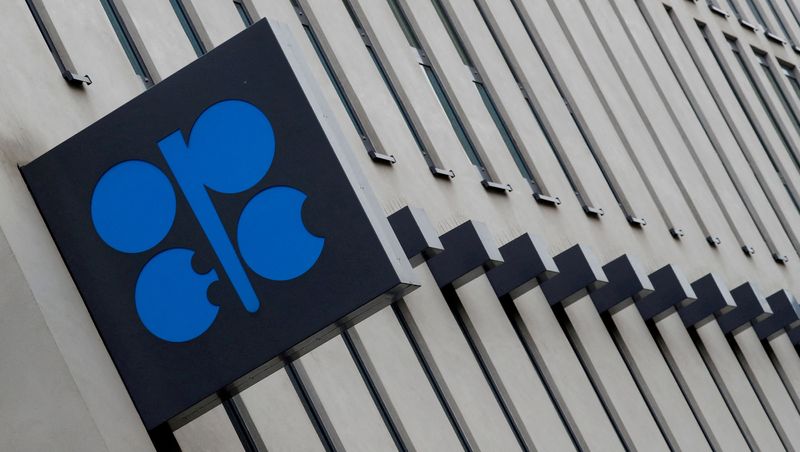By Ahmad Ghaddar and Maha El Dahan
LONDON/DUBAI (Reuters) -OPEC and its allies are unlikely to deepen supply cuts at their ministerial meeting on Sunday despite a fall in oil prices toward $70 per barrel, four sources from the alliance told Reuters.
OPEC+, which groups the Organization of the Petroleum Exporting Countries and allies led by Russia, pumps around 40% of the world's crude and supplies around 60% of the oil export market, meaning its policy decisions can have a major price impact.
As the economic outlook worsened, several members of OPEC+ in April pledged voluntary cuts starting from May and to continue to the end of the year.
This was in addition to a 2 million barrels per day (bpd) cut agreed in early October to output targets versus an August 2022 production baseline. It brought total output cuts to 3.66 million bpd, or about 4% of global consumption.
The group of late has cut by more than its targets mainly because of capacity limitations in West African producers Nigeria and Angola.
A Reuters survey found the two countries missed their output targets by a combined 600,000 bpd in May, while outages in the Kurdistan Region of northern Iraq meant the country produced 220,000 bpd below its target last month.
The surprise announcement in April helped to drive benchmark Brent crude prices about $9 per barrel higher to above $87 over the days followed, but Brent has since lost those gains to trade below $73, under pressure from concerns about global economic growth and its impact on fuel demand.
Last week, Saudi Energy Minister Prince Abdulaziz bin Salman told investors he said were shorting the oil price to "watch out," which many market watchers interpreted as a warning of additional supply cuts.
Russian Deputy Prime Minister Alexander Novak subsequently said he did not expect any new steps from OPEC+ in Vienna, Russian media reported.
The Kremlin on Thursday did not comment on the meeting's outcome, but Kremlin spokesman Dmitry Peskov said relations with Saudi Arabia were "constructive, based on mutual understanding, mutual respect, mutual trust".
'EVERYTHING CAN CHANGE'
"At this precise time, no change for the meeting but as usual, depending on the mood of some, everything can change," one OPEC+ source said. This view was echoed by three other sources, all of whom asked not to be named.
Two other sources said it was too soon to be sure of the meeting's outcome.
Beyond the unexpected April decision, the group has surprised markets several times in recent years.
In March 2020, it abandoned production quotas altogether, launching a Saudi-Russian price war at the onset of the COVID-19 pandemic that sent oil prices 25% lower.
It quickly re-established quotas with its biggest output cut to date of about 10 million bpd, agreed in April, 2020.
HSBC said in a note on Wednesday it did not expect OPEC+ to change its policy, but that the group may cut output later if an expected market deficit in the second half of the year does not materialise and prices remain below $80 per barrel.
"We think the current set of cuts, in addition to the stronger oil demand we expect from China and the West from the summer onwards, will bring about a deficit in the market in 2H23," the bank said.
OPEC has said it expects oil demand growth to reach 2.33 million bpd this year as non-OPEC supplies grow by 1.4 million bpd.

Goldman Sachs (NYSE:GS) anticipated no change to OPEC+ policy this week, but predicted the group could "utilise some partly offsetting hawkish rhetoric".
The bank also said OPEC+ may act later if prices remain below $80 in the second half of the year.